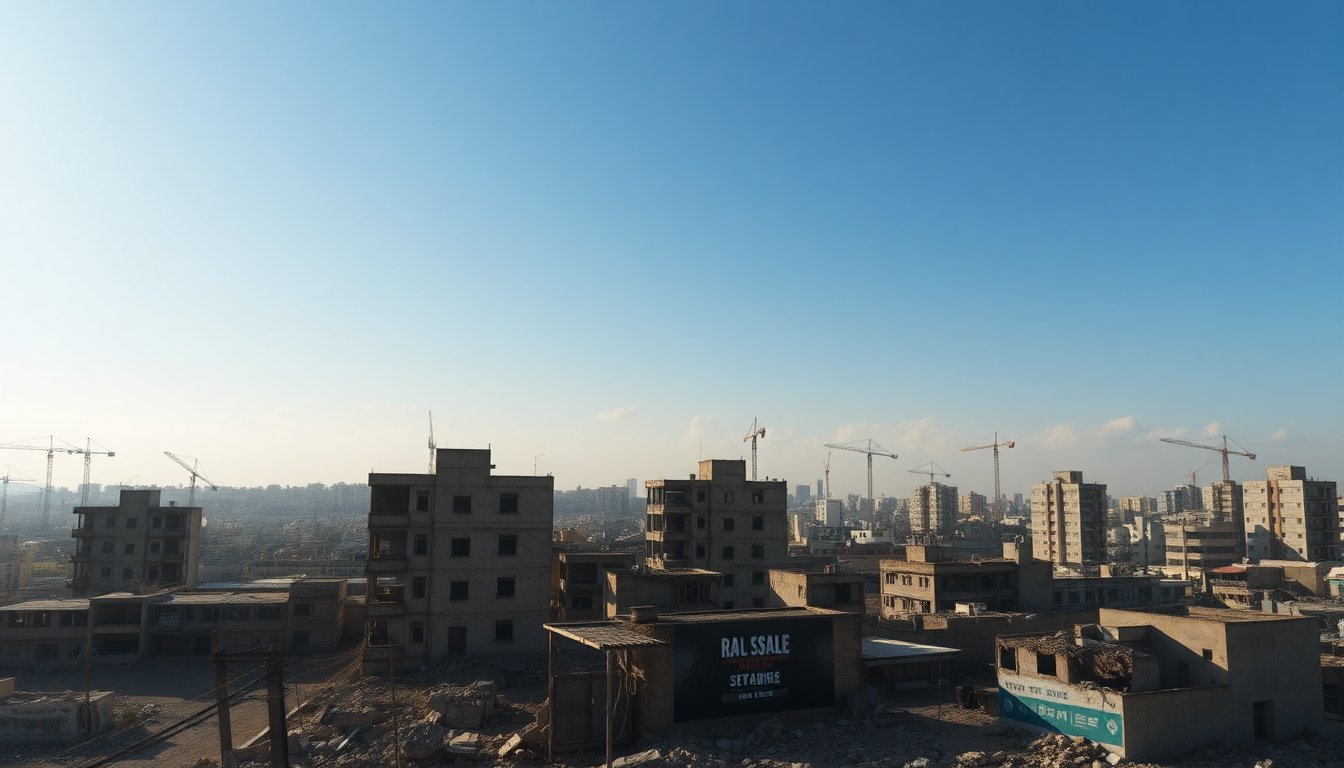Table of Contents
In the realm of real estate, the influence of geopolitical conflicts cannot be underestimated. Recent events in Gaza City have underscored the profound impact that military operations can have on property values, investment strategies, and market stability. For investors navigating these turbulent waters, understanding the intersection of conflict and real estate is crucial.
Market Overview: The Current Landscape
The real estate market operates on a foundation of stability and predictability. Geopolitical events can severely disrupt this balance. Historical data indicates that regions experiencing conflict often see immediate declines in property values due to mass displacement and economic instability. For instance, the ongoing military actions in Gaza have resulted in widespread destruction of residential high-rises, forcing residents to relocate and creating a ripple effect on local economies.
Moreover, the Israeli-Palestinian conflict has affected not just the immediate area but also neighboring markets. Global investors are cautious, as uncertainty can lead to hesitance in making significant financial commitments. Recent property sales in conflict-affected regions illustrate a notable downturn, showcasing the correlation between violence and real estate depreciation.
Analyzing Affected Areas and Property Types
When evaluating the impact of conflict on specific areas, geographical nuances must be considered. In Gaza, high-rise buildings, often seen as prime real estate, have become targets, leading to significant transformations of the urban landscape. The destruction of these structures not only displaces families but also creates opportunities for future development once stability returns.
From an investment perspective, multi-family units and commercial properties in regions adjacent to conflict zones may present unique opportunities. Investors often seek to capitalize on lower prices during downturns, betting on a potential recovery once peace is restored. It is imperative to analyze local market conditions, historical recovery patterns, and government policies on rebuilding to accurately assess future value appreciation.
Price Trends and Investment Opportunities
Current price trends in conflict-affected areas reveal a clear pattern: increased activity post-crisis. Investors who closely monitor the market can identify undervalued properties that, following a period of stabilization, are poised for significant appreciation. The concept of ROI (return on investment) becomes paramount, as savvy investors calculate potential gains against the backdrop of rising demand and diminishing supply.
Furthermore, the use of cap rates in assessing property value is crucial. In conflict zones, cap rates may initially appear high due to perceived risk. However, as the dust settles and rebuilding begins, these rates can compress, leading to attractive cash flow opportunities for those willing to take calculated risks. Identifying the right moment to enter the market is essential for maximizing investment returns.
Practical Advice for Investors
For potential investors considering their next move amidst geopolitical tensions, several strategies can prove beneficial. Firstly, it is critical to stay informed about the political climate and its impact on local economies. Engaging with local real estate experts can provide insights that data alone may not reveal.
Additionally, consider diversifying investments across different regions to mitigate risk. While some markets may be affected by conflict, others may thrive due to population shifts and economic changes. Lastly, patience is key; the real estate market often rewards those who can wait for the right moment to capitalize on emerging opportunities.
Medium-Term Forecasts
Looking ahead, the medium-term outlook for real estate markets in conflict zones hinges on several factors: political resolutions, economic recovery, and infrastructural rebuilding efforts. Historical examples indicate that once stability is restored, property values can rebound sharply, often outpacing previous highs. Investors who position themselves wisely during downturns can enjoy substantial returns as markets recover.
The real estate market operates on a foundation of stability and predictability. Geopolitical events can severely disrupt this balance. Historical data indicates that regions experiencing conflict often see immediate declines in property values due to mass displacement and economic instability. For instance, the ongoing military actions in Gaza have resulted in widespread destruction of residential high-rises, forcing residents to relocate and creating a ripple effect on local economies.0


